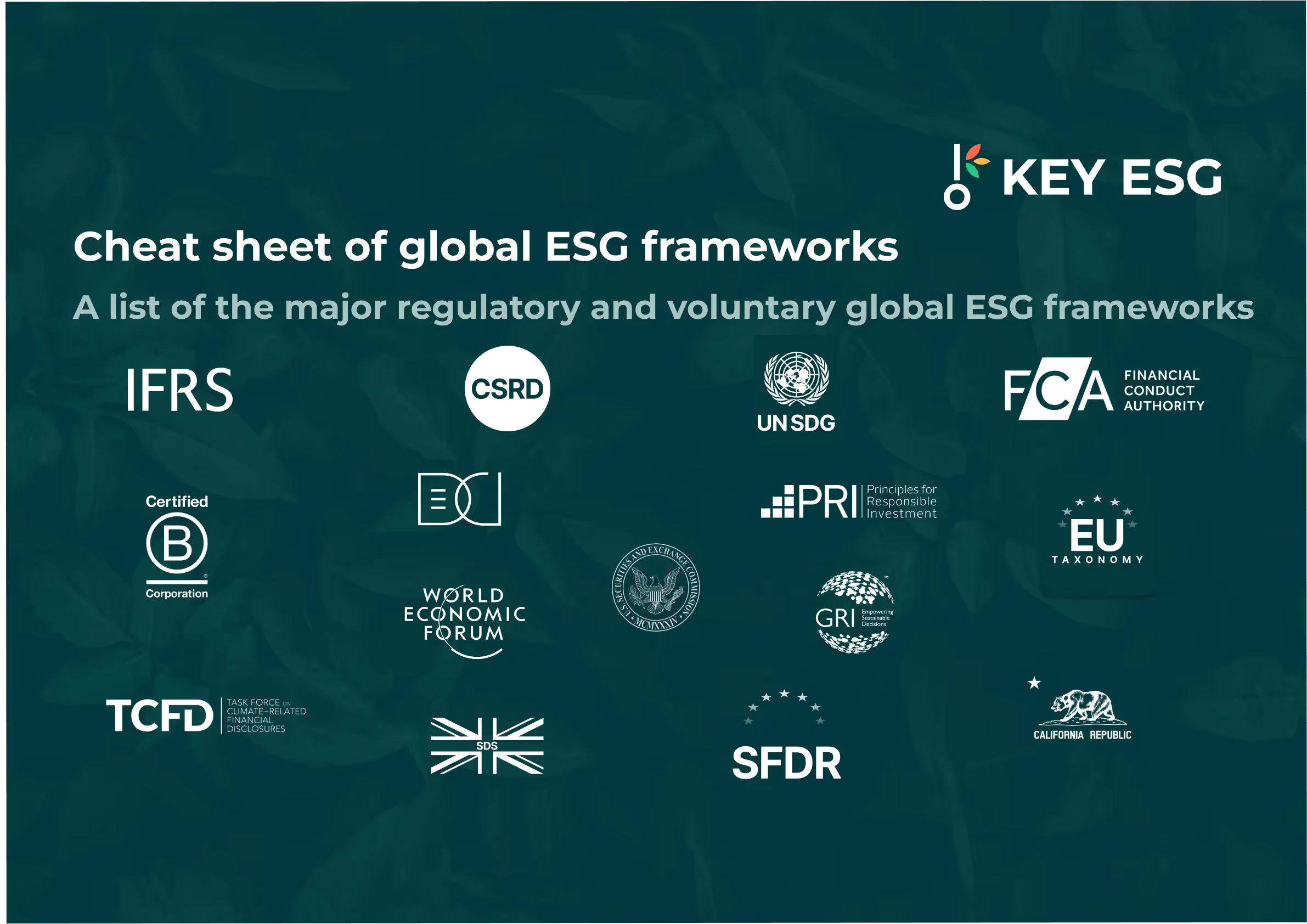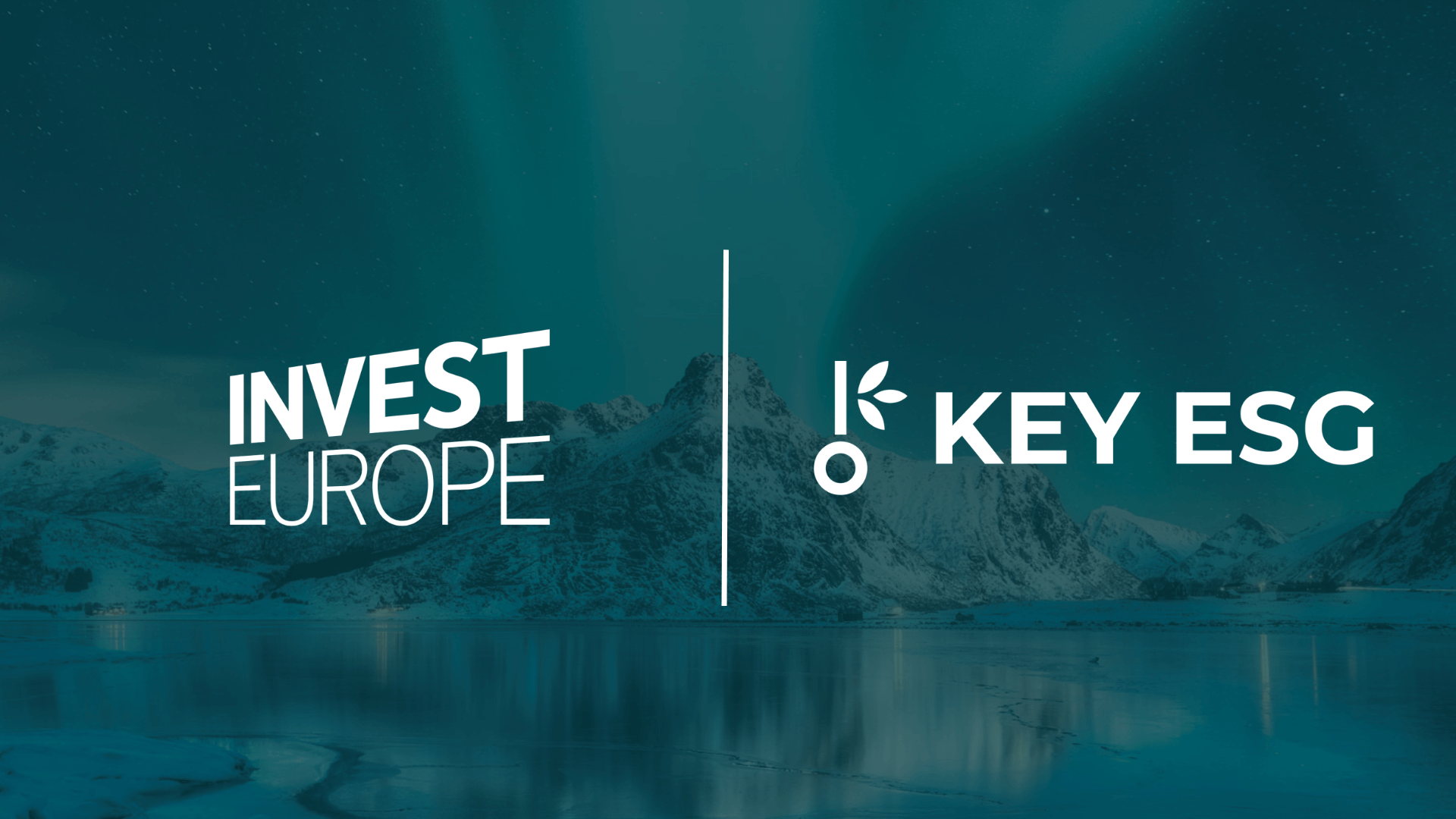On-demand webinar: deep-dive and Q&A on the EDCI with KEY ESG and BCG Expand
On the 26th March 2024 at 3pm UTC, KEY ESG is hosted a webinar on the ESG Data Convergence Initiative (EDCI) with our partner Expand Research. In this webinar, Ben Baxter from Expand Research (a BCG Company) provides an introduction to the EDCI and explores the learnings that can be taken from 2023 benchmark data.
KEY ESG's Co-founder & COO Anne-Marie Schoonbeek discusses how KEY ESG is working together with the EDCI to enable simplified data submission to the EDCI portal and benchmark visualisation in our analytics dashboards. We also provide case studies of how some of KEY ESG's customers are using the EDCI data to manage their ESG requirements and targets.
More about the EDCI
The EDCI is a voluntary framework that seeks to standardise ESG reporting to help private equity firms work towards unified goals. The association now has over 375 GPs and LPs in its membership, covering over 4,300 portfolio companies and over 62,000 data points. The EDCI has partnered with Boston Consulting Group (BCG) to anonymise and organiseall of the data to provide benchmarks for use by EDCI members. These benchmarks have been organised into sectors and sub-sectors, enabling private equity companies to see how their ESG metrics compare to other firms in their field.
KEY ESG and EDCI
KEY ESG is at the forefront of providing ESG software solutions to help firms track their ESG metrics and adhere to ESG regulations, including EDCI standards. KEY ESG is one of a small number of firms in the world that is partnering with the EDCI to enabled EDCI members to visualize the benchmarks in their software and submit information direct to the EDCI via API.
Data submission and validation is far more efficient when received through API from a connected platform like KEY ESG. At the tap of a button, all data inputted into KEY ESG’s intuitive dashboard can be submitted to EDCI for validation, without the need to transfer information to an external platform.
EDCI members can view benchmark data in the KEY ESG dashboard, and member firms can use these insights to shape their strategic objectives and their overarching ESG narrative.
On-demand webinar: deep-dive and Q&A on the EDCI with KEY ESG and BCG Expand
On the 26th March 2024 at 3pm UTC, KEY ESG is hosted a webinar on the ESG Data Convergence Initiative (EDCI) with our partner Expand Research. In this webinar, Ben Baxter from Expand Research (a BCG Company) provides an introduction to the EDCI and explores the learnings that can be taken from 2023 benchmark data.
KEY ESG's Co-founder & COO Anne-Marie Schoonbeek discusses how KEY ESG is working together with the EDCI to enable simplified data submission to the EDCI portal and benchmark visualisation in our analytics dashboards. We also provide case studies of how some of KEY ESG's customers are using the EDCI data to manage their ESG requirements and targets.
More about the EDCI
The EDCI is a voluntary framework that seeks to standardise ESG reporting to help private equity firms work towards unified goals. The association now has over 375 GPs and LPs in its membership, covering over 4,300 portfolio companies and over 62,000 data points. The EDCI has partnered with Boston Consulting Group (BCG) to anonymise and organiseall of the data to provide benchmarks for use by EDCI members. These benchmarks have been organised into sectors and sub-sectors, enabling private equity companies to see how their ESG metrics compare to other firms in their field.
KEY ESG and EDCI
KEY ESG is at the forefront of providing ESG software solutions to help firms track their ESG metrics and adhere to ESG regulations, including EDCI standards. KEY ESG is one of a small number of firms in the world that is partnering with the EDCI to enabled EDCI members to visualize the benchmarks in their software and submit information direct to the EDCI via API.
Data submission and validation is far more efficient when received through API from a connected platform like KEY ESG. At the tap of a button, all data inputted into KEY ESG’s intuitive dashboard can be submitted to EDCI for validation, without the need to transfer information to an external platform.
EDCI members can view benchmark data in the KEY ESG dashboard, and member firms can use these insights to shape their strategic objectives and their overarching ESG narrative.





%20(1).png)
